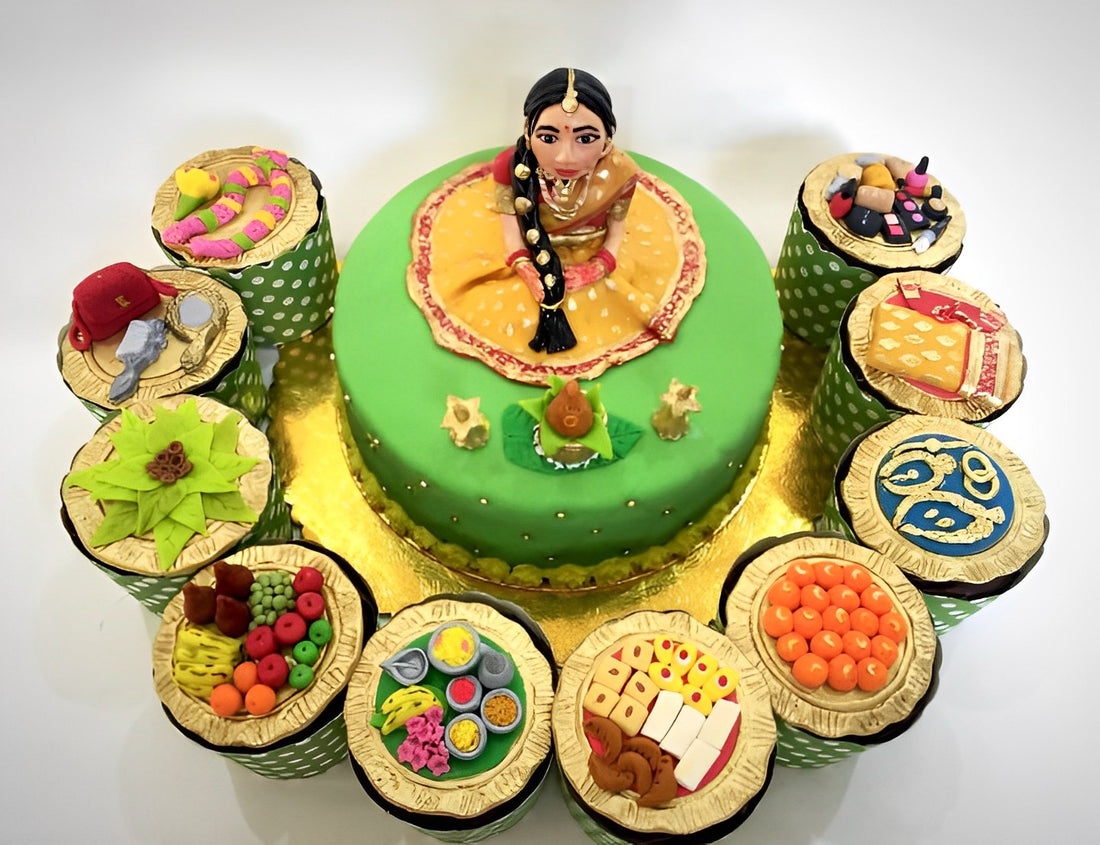Even though each region has their own rituals and ceremonies, the one thing common is that a girl's first period is celebrated - friends and family are invited and the girl is displayed for semi-public scrutiny by judgmental aunties.
To understand why this was such a big deal and why it is not anymore, let us take a trip to an era when internet dating did not exist and life expectancy was not that great.
It was a time when parents were worried about their young girls being left alone to fend for themselves without the support of parents/brothers/husbands. To stay on the safer side, they wanted to marry their daughters off as soon as possible. But since there were no matrimony websites and internet dating, it was really hard to find the right groom.

First periods indicated that their daughter was a girl no more and that she had become a fertile woman ready to reproduce (yup, it was a dark time when women were evaluated based on their ability to reproduce). This served as an excuse to throw a party sprinkled with religious and cultural ceremonies.
So basically this celebration was a ruse to announce to the world that they have a girl ready to wed, and suitors are welcome to ask for her hand. The womenfolk met with the girl when taking part in the rituals, interviewed her, observed her manners and evaluated if she was good for their family, and reported to the gentlemen. After gathering the necessary intel, the groom's family decided whether or not an offer was to be made.
It might sound cold and business-like, but this was a very efficient form as far as they were concerned and it got the job done.
There was a time when girls were proud of their periods because it meant that they were fertile women. After the foreign invasions, there was a shift in people's outlook and the culture became a weird mix of Indian, middle-eastern, and Western influences. In the confusion, we started questioning our own culture and practices. The things that we did for a positive lifestyle came to be viewed as oppressive patriarchal practices, for example:
"Women should stay in a separate room away from the rest of the family and must not enter the kitchen" - During periods we did not have pads, tampons, cups, or disks to help with the bleeding. Women needed a break from their chores and noisy demanding families - this tradition was to help women rest guilt-free for 3 days a month without having to slog for the men or children of the family. Since it was common to have large joint families, it was practical as well.

"Women should not visit temples during periods'' - Ladies please help me understand this - if you were a woman on her period without proper protection, with abundant cramps and mood swings, would you really want to walk to a temple early in the morning after a cold bath, circumambulate around the temple 3-9 times depending on the diet, chit chat with the other womenfolk and then walk back home? If you ask me, I'd say no thank you.

Most of the customs were made for the benefit of women, I agree that we may not need most of them now thanks to Tinder, Bharat Matrimony and whatnot!
We have a rich cultural heritage - which is both envied and studied by the rest of the world. It is time we stop looking down our noses at them and start digging deep to understand them better. Accepting and liking another culture does not mean we dislike and disrespect our own.
Guest Blogger: Remya Krishnan, Content Writer

